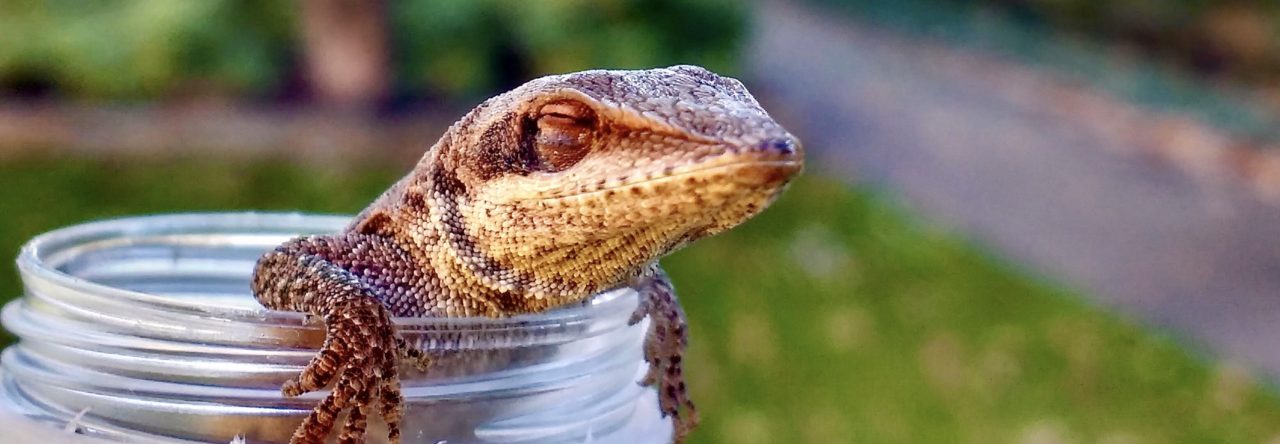Sperm storage is widespread in all major reptilian taxa and in combination with multiple mating it could have indirect benefits in polyandrous systems for example by increasing genetic diversity among offspring. Hannah Marshall, a junior majoring in Biomedical Sciences at Auburn University in Tonia Schwartz’s lab, set out to test the utility of microsatellite markers in paternity analysis in a population of brown anoles, Anolis sagrei, in Florida and to assess the extent and pattern of sperm storage from field matings.
Brown anoles from the field were housed in pairs (control) and in groups of four (2M:2F) and six (3M:3F) in 23 experimental laboratory enclosures. Eggs were collected over one breading season and hatchlings and their candidate parents were genotyped at seven microsatellite loci. The software CERVUS was used to determine the most probable parental pair for each hatchling and to disentangle paternity from experimental males to sperm storage.
Results show that these markers are sufficiently polymorphic to allow paternity assignments with high confidence. With regards to the use of stored sperm, 58% of the eggs produced in the lab were from field matings, which is consistent with previous findings in Anolis sagrei. However, Hannah’s data suggest that these lizards continue to use their stored sperm up to 4 months, longer than previously documented.
These findings are preliminary and Hannah is currently collecting and analyzing more data from these experimental enclosures. Understanding the dynamics of reproductive output in this focal population is valuable for planning further experiments to measure fitness.
- SICB 2018: Variation in metabolic rate among Anolis oculatus ecotypes on Dominica - January 10, 2018
- SICB 2018: Sperm storage and multiple paternity in brown anoles - January 7, 2018


Leave a Reply